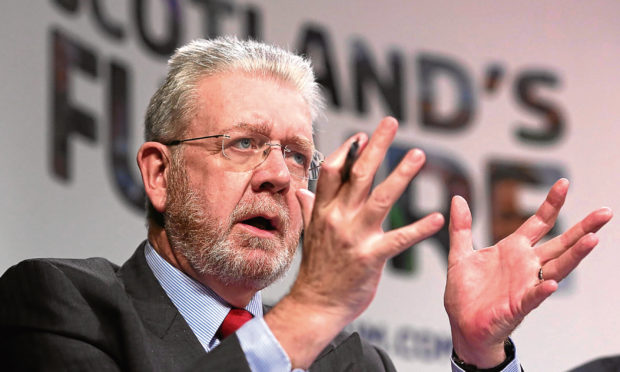A home for everyone. It sounds like a slogan from the creation of the welfare state, a cry to build a new Britain.
As it is, a home for everyone was not part of the 1945 vision, and the supply of houses to people ever since has been beset with reversals and bad decisions.
It is the hot political issue as homelessness rises, poor housing curses people’s health, and generation rent come to resent the smugly mortgaged.
The lack of homes in Scotland is also a major drag on our economy. Communities cannot grow if there is nowhere to live.
Yesterday Holyrood discussed this. That is, politicians read party-vetted four minute speeches to the backs of colleagues’ heads.
Parliamentary procedure calls this a “debate” but no ideas were raised, no minds changed, no substantial actions followed.
Holyrood “debates” housing regularly and another one will come along soon if you want to witness the wit and passion of our representatives.
The SNP said the Tories had a “brass neck” for even talking about housing. It has become’s Ruth Davidson’s Big Idea to do something about the matter – given their record on resisting housing reform and selling off council houses.
I’m pretty sure Neal Ascherson’s book Stone Voices mentions an SNP policy in the late 1970s about selling off council houses, but let’s assume for the sake of tribalism that the SNP have always been foursquare behind public housing.
The Tories could equally accuse the SNP of a deaf ear to people’s regret that Holyrood has not delivered a bold policy in 20 years of operation.
Nicola Sturgeon’s Programme for Government has been well received but it lacks the kind of big idea that Scots hoped for when voting for devolution and tax raising powers in 1997.
Housing charity Shelter says Scotland needs around 60,000 affordable houses – a number it thinks will be reached by the end of this parliament.
Shelter says 150,000 households are on council waiting lists and that more than 700,000 homes are in fuel poverty. It seems unclear then exactly how many houses needed to be built to meet all these demands.
While greater research may be needed on the exact amount, it seems reasonable to suggest a 10-year programme of 12,000 affordable houses a year coupled to improvements on existing stock might meet the need.
If we can find £1 billion for a bridge, half a billion for trams and throw many billions at enterprise agencies, what’s stopping us making a home for everyone a solid, long-term commitment of lasting value?
This matters because the day before MSPs exchanged dull speeches, they heard from one of the parliament’s few orators, Brexit minister Mike Russell.
Russell warned, again, that the EU Withdrawal Bill going through the Commons was a power grab from Holyrood and must be resisted at all costs, else devolution would be denuded before it reached 21.
The Scottish Government have a case. The EU Withdrawal Bill does give power to ministers to over-ride both Westminster and Edinburgh parliaments.
The Tories would like us to think of it as an efficient way to speed along Brexit preparations. Russell and the Scottish Government are struggling to whip up public alarm over this.
In part this is because the EU Withdrawal Bill is technical and does not present easy campaigning points.
In part it is because the Bill could result in the restriction of Westminster and Holyrood but so far there is no actual infringement, and Tories deny there ever will be.
Lastly, as the 20th birthday celebrations of devolution showed, the public is pretty unimpressed with how little existing powers have been used.
It’s hard to get angry about a power possibly being taken away when the Scottish Government has never used it in the first place.
Spotting this weakness in her government’s case, Sturgeon has hinted she is about to get radical and actually raise tax.
The calculation is that a Scottish Government trying to offset Tory cuts which is then deprived of existing powers will look a lot more wronged.
That explains Sturgeon’s odd hint that taxes may go up, but not saying which ones, how far or what for.
It is incredibly rare for a democratic government to hint at higher taxes without mentioning any reward for the voters in return.
Sturgeon has simply left the suggestion hanging, as if it were a mundane business like turning up the central heating.
Which in turn brings us back to the Scots who live in houses with poor heating, or no house at all.
These are real people with real problems which the Scottish Government can really fix. If she raised tax to pay for a home for everyone, then she’d have justified devolution in a stroke.
